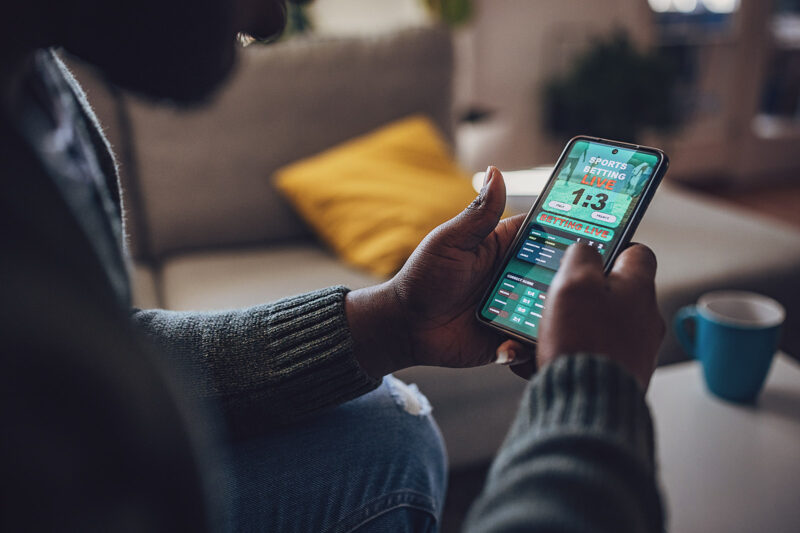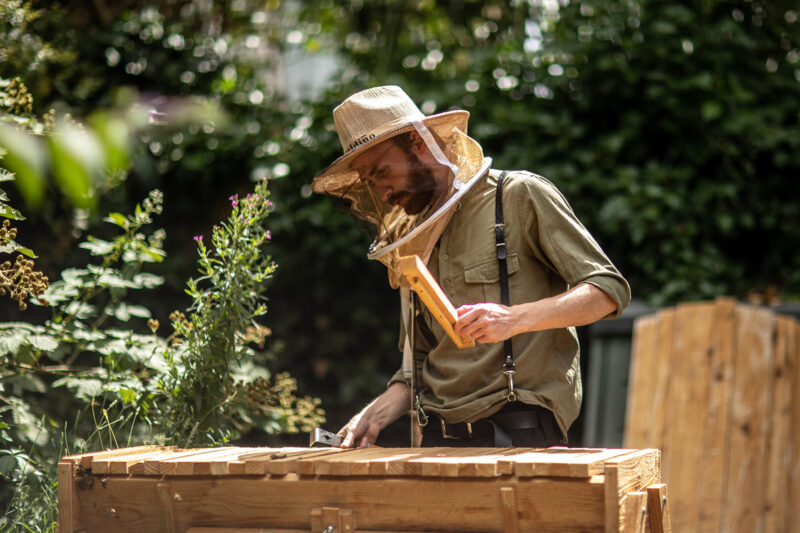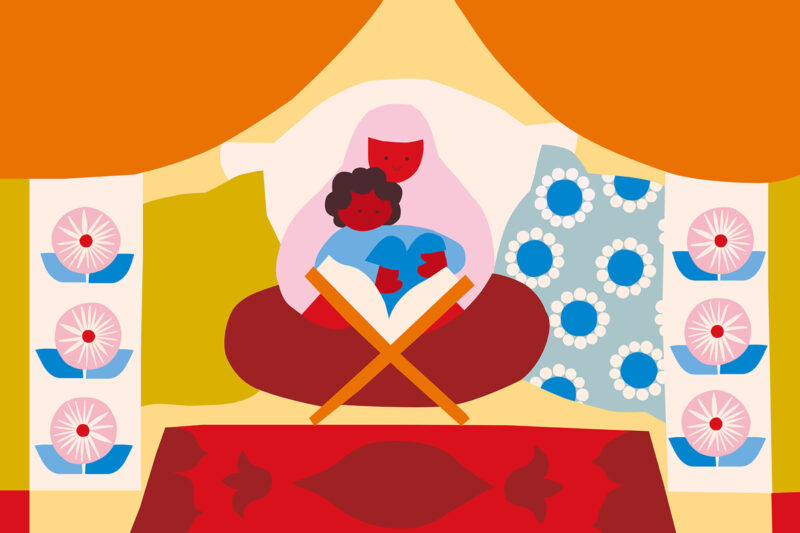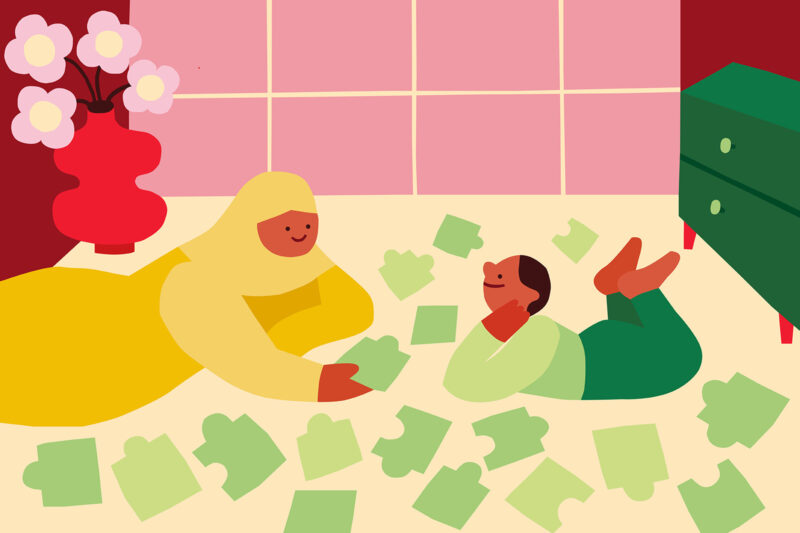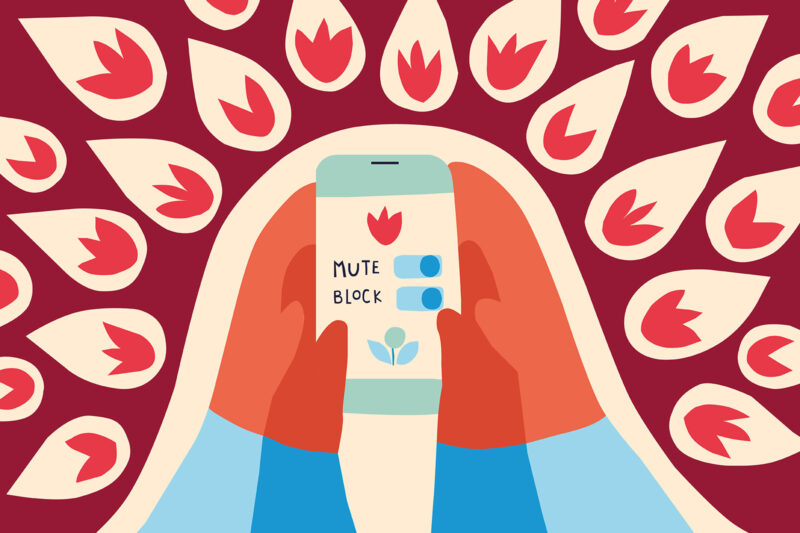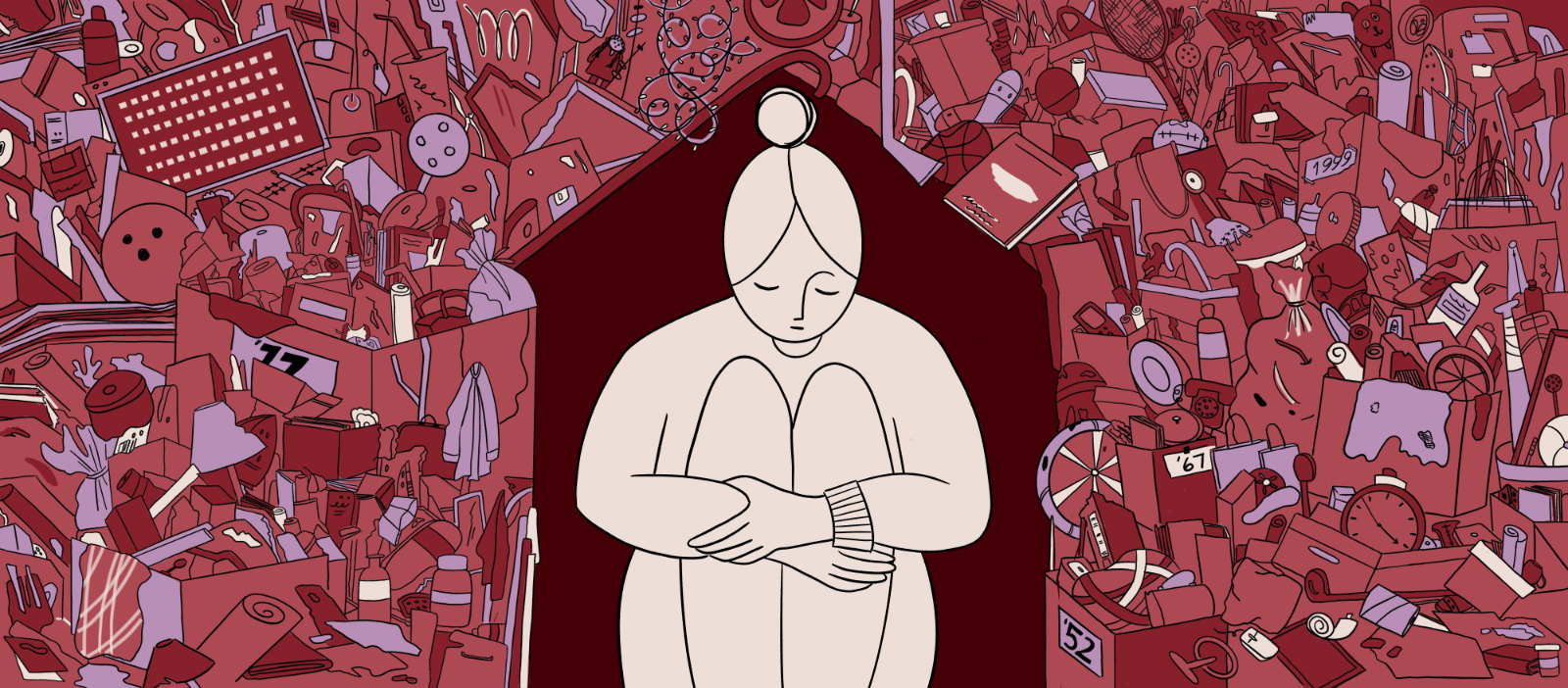
‘Maybe my mum’s hoarding was her craving a sense of home’
Our attachments to physical possessions are complex, multilayered and often linked to life experiences — especially within immigrant communities
From childhood, Nina Laqman knew there was something different about her family home. The living room was lined with multiple glass cabinets filled with trinkets and random collections of ornaments filling every shelf — small ceramic animals, tiny globes, mosque figurines and a vast array of lanterns. Empty plastic containers and carrier bags holding yet more carrier bags were piled together in the kitchen. Empty shampoo and shower gel bottles had taken over the bathroom.
“There was just a lot of clutter — things that you didn’t really need to hold on to,” says Laqman, now 28. “When I would go to friends’ houses, I noticed that they had a lot less and the things they did have, they really loved.”
Laqman, who spoke to Hyphen under an assumed name, comes from a working-class family of five in north London. Her parents are both from Bangladesh. Over the years, her mother’s accumulation of “stuff” has caused significant stress for Laqman and her two siblings, and has also led to conflict with her father.
“It’s one of the things they still argue about,” says Laqman. “My dad would often make harsh comments like, ‘Why are you like this’ and ‘It’s a sickness’, which my mum would even agree with. She just doesn’t understand why she struggles to let go.”
Laqman’s mother was just 13 when she moved to the UK with her parents. Laqman believes that her difficulty in parting with physical objects may be connected to that experience.
“My mum came here when she was really young,” Laqman says. “Maybe she collects these things because she’s craving a sense of home. Obviously, it was a massive life change for her, so maybe this can all be seen as a coping mechanism.”
While many academic and medical papers have focused on hoarding, little specific research has been undertaken within immigrant or refugee communities. One study published in the European Journal of Psychotraumatology in 2021 finds a direct correlation between trauma involving loss or deprivation and emotional attachment to physical possessions.
Meanwhile, a 2021 study titled Trauma and Resilience Among Displaced Populations, published by the University of Neuchâtel in Switzerland, states that every stage of the migration process poses its own set of stressors: “Refugees are typically exposed to a multitude of traumas — not only in their countries of origin but all along their migration journey.”
Psychologist and hoarding expert Dr Michael Tompkins says: “Most people, if not all people who experience periods of deprivation and limited resources, will engage in hoarding behaviour for a period in response.
“We are prone to this behaviour. It is, in part, how we survive,” he adds, explaining that similar behaviours can also be seen in the animal kingdom.
The severity of such responses and the point at which commonly experienced attachments to objects or excessive clutter becomes full-blown hoarding largely depends on a person’s individual circumstances and disposition, according to Tompkins.
“People are complicated,” he says. “We each bring our own biological and genetic vulnerabilities. When someone engages in the same coping behaviours who has not been in a period of deprivation for quite some time, I would suggest that they probably do have some kind of underlying psychological vulnerability.”
While most people have a drawer full of random objects that they believe may one day come in useful, more disruptive patterns of behavior often appear to be driven by a need to manage or mitigate the threat of scarcity — especially if they have experienced hardship before.
“It’s a fear of letting go and a way of relating to the world where everything needs to be held on to because you don’t know when or if you’ll need it,” says therapist Debbie Mills. “Even if it’s just a drawer full of paper napkins or ketchup packets from 7,000 different fast food joints, really it’s saying, ‘I’ve got this, I’m OK’, so we cling and we grasp and we don’t let go.”
Born to a Filipino mother and a father from the US, Mills, who lives in Houston, Texas, had long recognised such patterns in her mother’s behaviour and that of several maternal relatives. Her father’s adoptive parents, who lived through the Great Depression, also displayed similar tendencies.
“My mum used to love home interiors, she loved Tupperware and little figurines,” says Mills. “Every single surface had something on it, all the wall space. She was aware that she didn’t want to let anything go, but I don’t think that she was conscious of why — that this was potentially a result of having to leave the Philippines and [her] people.”
However, not all problematic attachments involve physical objects. Digital hoarding, a modern phenomenon in which people “save every email, every photo, every phone message and every text they’ve ever received” has become increasingly common, says Tompkins.
Though it does not pose the same risks to health and safety as the most extreme forms of physical hoarding, the psychological motivations and mental effects are often similar.
“It is overwhelming and tends to trigger the same thoughts and beliefs,” says Tompkins. “Technology makes it so easy and effortless. One can keep photos and emails without any choice. It just happens automatically,” he says.
For years, video editor Dalia Hassan compulsively collected moments of her life in digital form.
Hassan, who also spoke to Hyphen under an assumed name, came to the UK as a refugee from Egypt with her family in 2014 when she was 18. In her first few years in the country, she recalls experiencing anxiety and depression during which she also noted a growing “obsession with trying to keep memories”.
“I take and keep endless amounts of photos from every place I go,” she says. “I probably have thousands of pictures of the sky and various parks. I also keep all my old phones because they have notes on them, which I often back up on my laptop as well. I would feel bad if I lost them, even though I barely look at them.
“My family and I would sit down and have these conversations where we would discuss politics and other random stuff. I felt they were so precious, so I would record them. I also have a lot of recordings of sounds from the train, such as station announcements. It was a weird obsession with the fact that nothing lasts, time passes and things come to an end. I was trying to hold on to anything I could.”
Eventually, as Hassan’s sense of general wellbeing improved, her need to record so many everyday moments lessened.
“It was when I started to let go and accept that I could no longer be the same person as I was when I lived in Egypt,” she says.
“Maybe wanting to hold on to things is a form of control. Because things get taken away from you — you’re powerless against that. But it’s being able to say, ‘I still have this’. Even if time takes everything else away from me, I still have this photo or recording as a thing that makes me feel safe.”
Regardless of the motivations behind hoarding — physically or digitally — for Tompkins, the key to tackling it is acknowledging that there is a problem, alongside a willingness to seek help.
“The first question is, is the person open to help? If they are not, then trying to help can make it worse and be very traumatic for them. But if a loved one is open to decluttering and organising possessions, then family members and friends can step in,” he says.
Laqman recalls the moment, roughly two years ago, when she finally confronted the piles of random objects in her parental home.
“I don’t know what happened, but I was in the bathroom, surrounded by all these empty bottles. I just felt like I couldn’t deal with it any more, so I just got everything and threw it all in the bin.”
After that initial intervention, her mother began to develop a desire for change. Since then her progress has been gradual but substantial.
“She’s definitely become a lot more aware. She throws things away more easily, and gives clothes to charity more easily,” says Laqman. “Sometimes I even get surprised.”
If you are affected by any of the issues covered in this article the mental health charities Mind and Kelly’s Trust have a selection of resources and contacts on their websites.
 Newsletter
Newsletter




